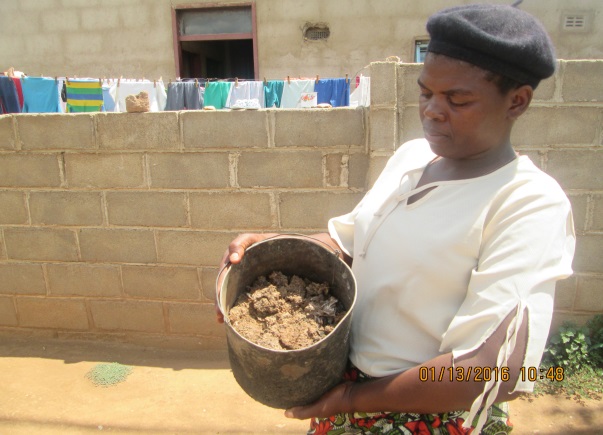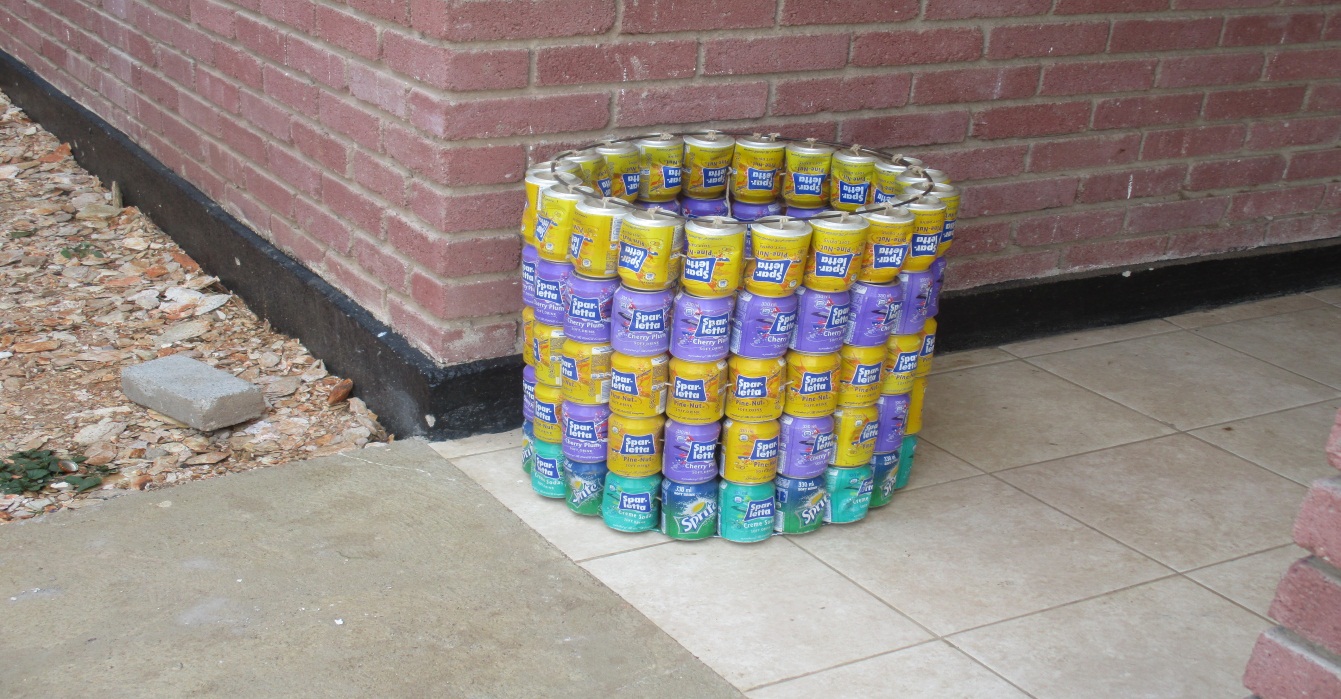COMMUNITY HEALTH CLUBS THE ANSWER TO ENVIRONMENTAL CHALLENGES IN GWANDA TOWN
Gwanda Town is the Provincial capital of Matabeleland South province, situated about 126 km south of Bulawayo, the country’s second largest city. In the last decade the town has seen a lot of population growth and increased demand for Water, Sanitation and Hygiene (WASH) service delivery. World Vision Zimbabwe working in conjunction with the Municipality of Gwanda (MoG) is implementing an Australian Aid Funded WASH project, funds managed by UNICEF. The project has supported and promoted the Participatory Health and Hygiene Education activities that have led to the establishment of school and community health clubs. The clubs now serve as a source of information and inspiration in strengthening and improving hygiene practices.
The Asihlanzekeni Health club a name that translates to “Let’s be health and hygiene conscious” is one of the established health clubs that has become a beacon of hope in raising awareness on health and sanitation issues in the town.Sibusiso Sibanda the club’s chairperson said that the club started off in 2015 with a membership of 5 women whose objective was to ensure that Ultra High Suburb was clean and free from disease outbreak emanating from indiscriminate disposal of waste material. The club members were never deterred by their small membership; they organized and conducted clean up campaigns in and around their community. Sibusiso noted that prior to club formation Ultra High suburb was characterized by garbage thrown all over such as used pampers, sanitary pads, used condoms and litter. Some of the garbage got into drainages thereby causing blockages to sewer systems leading to a perennial flow of sewage in Manzamnyama River. Sibusiso also highlighted that during water rationing in the town residents treated open defecation as a normal option and this exposed residents to fecal related disease such as diarrhea. In a bid to curb sewer blockages, the club disseminated information to community members on proper ways of waste disposal and also came up with [pic above: Health club member shows sand trapped recycled at a household gully trap] an innovation of use of sand traps. Sand traps are made of empty porous plastic bags. They are put and supported at the gully trap where they trap and collect waste from the kitchen sinks and bathrooms, water sieves through and waste material such as sand is trapped and prevented from entering into gulleys and causing blockages to the drainage system. The empty bags are usually donated by community members who rear chickens and club members then sew and distribute these sand traps to all community members for free as a way to encourage other households to use sand traps. Each household traps at least 3 – 5kg of sand per week that should have seen choking of sewer pipes.
become a beacon of hope in raising awareness on health and sanitation issues in the town.Sibusiso Sibanda the club’s chairperson said that the club started off in 2015 with a membership of 5 women whose objective was to ensure that Ultra High Suburb was clean and free from disease outbreak emanating from indiscriminate disposal of waste material. The club members were never deterred by their small membership; they organized and conducted clean up campaigns in and around their community. Sibusiso noted that prior to club formation Ultra High suburb was characterized by garbage thrown all over such as used pampers, sanitary pads, used condoms and litter. Some of the garbage got into drainages thereby causing blockages to sewer systems leading to a perennial flow of sewage in Manzamnyama River. Sibusiso also highlighted that during water rationing in the town residents treated open defecation as a normal option and this exposed residents to fecal related disease such as diarrhea. In a bid to curb sewer blockages, the club disseminated information to community members on proper ways of waste disposal and also came up with [pic above: Health club member shows sand trapped recycled at a household gully trap] an innovation of use of sand traps. Sand traps are made of empty porous plastic bags. They are put and supported at the gully trap where they trap and collect waste from the kitchen sinks and bathrooms, water sieves through and waste material such as sand is trapped and prevented from entering into gulleys and causing blockages to the drainage system. The empty bags are usually donated by community members who rear chickens and club members then sew and distribute these sand traps to all community members for free as a way to encourage other households to use sand traps. Each household traps at least 3 – 5kg of sand per week that should have seen choking of sewer pipes.
As time progressed the club members began to widen their focus by engaging in income generating activities. This move lured many community members leading to an increase of membership to 83 women. Club members use recycled material that is; empty tin cans, plastic bottles, and empty bags. Hats and caps are sold at $3 and rubbish bins are $5 each. Hats have a fast market and they bring in a lot of cash per month. In order to boost the club fund each member contributes $3 per month and the money is shared at the end of the year. Sibusiso said, “I used the club proceeds to extend my house from two rooms to this big house that you see.” She also indicated that most club members had also managed to extend their houses from two rooms using income generated through the project activities. Of paramount importance is that the most vulnerable club members such as widows and orphans are able to provide decent meals for their families and pay school fees and other financial demands for their children and other dependents from sale recycled solid waste.
After observing the decisiveness of the community health clubs to ensure that Gwanda Town was clean and habitable the Municipality of Gwanda awarded short term casual work to health clubs to cut grass around the city, and clear drains and clubs were awarded in cash and club members reported that they bought household groceries and school fees for their children. The MoG reported that at least 80% of drains have been cleared and hiring of health clubs has been penciled by the council as a measure that promotes the sustainability of health clubs and their activities in the community.
 Sibusiso confidently stated that the garbage that used to litter the streets of Ultra-High is history. Information dissemination on health and hygiene is yielding positive results, less sewer blockages are being reported and Manzamnyama River which used to flow due to effluent is drying up. Few people are still practicing open defecation during water cuts and these are the target for hygiene sessions by CHCs. Participatory Health & hygiene education has necessitated households to buy enough containers to store water to use during water cuts. [pic left: Rubbish bins made from recycled soft drink cans]
Sibusiso confidently stated that the garbage that used to litter the streets of Ultra-High is history. Information dissemination on health and hygiene is yielding positive results, less sewer blockages are being reported and Manzamnyama River which used to flow due to effluent is drying up. Few people are still practicing open defecation during water cuts and these are the target for hygiene sessions by CHCs. Participatory Health & hygiene education has necessitated households to buy enough containers to store water to use during water cuts. [pic left: Rubbish bins made from recycled soft drink cans]
